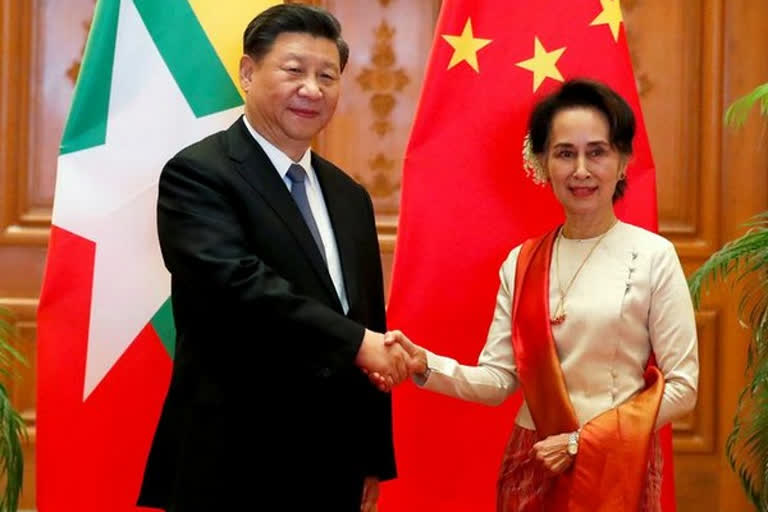Beijing: China and Myanmar signed dozens of deals on Saturday to speed up infrastructure projects in the country, as Beijing sought to cement its hold over a neighbour increasingly isolated by the West.
Thirty-three project agreements were signed in the presence of Chinese President Xi Jinping and Myanmar State Counsellor Aung San Suu Kyi that is part of Beijing's flagship Belt and Road Initiative, according to The Bangkok Post.
However, no new projects were agreed during the two-day visit by Jinping, the first Chinese leader to visit Myanmar in 19 years.
Instead, the two sides agreed to hasten development of the China Myanmar Economic Corridor, a giant infrastructure scheme worth billions of dollars, with agreements on railways linking southwestern China to the Indian Ocean, a deep sea-port in conflict-riven Rakhine state, a special economic zone on the border, and a new city project in the commercial capital of Yangon.
"The overall impression is that Myanmar is being cautious about Chinese investment, especially ahead of elections planned later in the year," said Richard Horsey, a Yangon-based analyst with the International Crisis Group, in response over Jinping's visit to Myanmar.
"Beijing will be hoping that this is an incremental step toward realising its mega-infrastructure goals and that further progress can be locked in over the coming months," the analyst stressed.
At a welcoming ceremony on Friday, Xi hailed a "new era" of relations between the countries.
"We are drawing a future roadmap that will bring to life bilateral relations based on brotherly and sisterly closeness in order to overcome hardships together and provide assistance to each other," he said.
Jinping is scheduled to complete his trip later on Saturday.
Read also:UN condemns Myanmar over Rohingya abuses
Meanwhile, Suu Kyi called China "a great country playing an important role in international affairs and the world economy."
The two countries had a historically fraught relationship but moved closer since 2017 after Myanmar was internationally condemned for its treatment of minority Rohingya Muslims in Rakhine state.
More than 7,30,000 Rohingya Muslims were forced to flee western Myanmar after a military crackdown that the United Nations has said was executed with "genocidal intent".
Since then, Beijing has defended the country on the global stage and is viewed as the biggest obstacle to the prosecution of Myanmar's leaders at an international war crimes tribunal.
An article, published in the Chinese state media ahead of Jinping state visit, said Myanmar had been "derailed" by its engagement with the West and only Beijing was willing to "pull Myanmar from the sludge".
Read also: Monsoon flooding batters Myanmar



